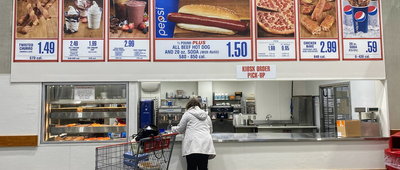Breast Pump Options.
I called Medela, a well-known and highly regarded manufacturer of breast pumps, to learn which machines are available through the ACA. Medela supplies four models: the Personal Double Pump (57038) and Advanced Personal Double Pump, which are not sold at retail; the Pump In Style Advanced (starting at $252); and the Freestyle (starting at $323). The Personal Double Pump (57038), a double electric breast pump with single-phase expression technology, is the model the DME provider had slated for me. The others are double electric breast pumps with the more desirable 2-phase expression technology.
My primary question for Medela was: Why supply single-phase technology when Medela's own testing shows the 2-phase technology is more efficient? "We want moms to get a double electric breast pump," said Claudette Yasell, who manages public relations and clinical writing for Medela. "Offering the single-phase double electric pump is a way we have found to give them that option even if their insurance isn't going to cover as much as the other three options. It's still a better option than a mom returning to work full time and pumping in a break room with a single manual pump." Although the company lacks data on which pump is given out most often under the ACA umbrella, one thing is certain -- demand has increased.
Related: How to cut baby costs the second time around
The ACA further stipulates that lactation assistance be provided in the form of a trained professional. In my case, my insurer fully covered the consultant's $180 fee for an hour-long session. Nagin, the private lactation consultant, said about 3 out of 4 of her clients are reimbursed for about 90 percent of her fees by their insurance providers. Still, Madden noted that some carriers only cover basic counseling provided by in-network physicians of unknown lactation experience.
Getting Breastfeeding Support and Coverage.
What can you do if you need breastfeeding support? You have several options. Everyone I spoke with recommends first talking to your insurance provider to learn what is covered. Madden, from the National Breastfeeding Center, also suggested asking about whom you can call on for lactation help. "Can you see an out-of-network lactation consultant? If not, why not? If the insurer is only covering in-network providers, have them refer you to a qualified consultant. If they say they only have physicians, ask them to identify which ones are qualified to deliver these services. If they say they don't know, quote the law about ‘trained provider' and let them know that you may file a complaint with the state insurance oversight body (varies from state to state) if they don't find you one."
The next step is to engage your employer if you have insurance through the workplace. Ask your employer about what is covered, Madden urged. "Once an employer begins to look at this, they will see if coverage is adequate or not," she said. "Approximately 60 percent of large companies are now ‘self-funded' and have the ability to dictate coverage in some cases and can make sure that their employees are properly covered under the ACA."
Related: Our top picks for cheap diapers
If you still can't assemble affordable support under the terms of your insurance plan, you have not exhausted your options. "Of course it depends on how full force a mom is willing to be about breastfeeding," Nagin conceded. "But if she is committed and her heart is there, there's always a way."
- Find a free lactation consultant or support group. Many La Leche League groups are free and can be a tremendous help.
- Learn to hand express.
- If possible, have the childcare provider (oftentimes the spouse) bring the child to nurse at work during a scheduled pumping session.
- Get a hand pump -- far cheaper than an electric pump.
- Buy an electric pump outright -- it's cheaper than the cost of formula for a year.
Borrowing a breast pump is never recommended because most pumps sold at retail are open systems, which allow some milk to enter the inner chamber that could be transferred to someone else's baby. Rental pumps are much higher grade and are designed with a closed system. There are exceptions, however. Hygeia makes a line of breast pumps called Enjoye that feature a closed system and start at about $200. This product may be the solution if you absolutely must borrow a breast pump or plan to buy one and pass it on to a family member or friend.
In an effort to make the ACA's breastfeeding support process easier to navigate, Medela has added a breastfeeding insurance page to its website. The National Breastfeeding Center and the United States Breastfeeding Committee have jointly created a model payer policy to help insurers meet the requirements of breastfeeding support stipulated by the ACA.








